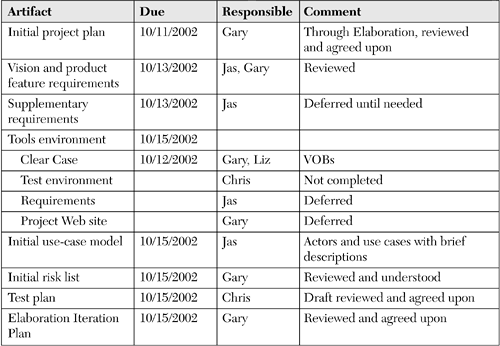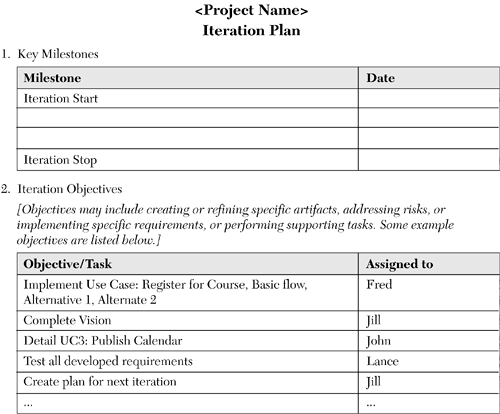Creating an Iteration Plan for Inception
| RUP is a process that is based on iterative development. If you are not working iteratively, you are not really using RUP. [6] Before each iteration you create an Iteration Plan. The plan does not have to be very detailed, nor does it even need to be a written plan, but it must be one that can be communicated to all members of the team and to all stakeholders.
As our project progressed and we got into the rhythm of regular iterations, we became less worried about creating written plans. In the beginning, though, for the Inception phase, we felt the need to write out the Iteration Plan. We began with the RUP Iteration Plan template and tailored it to our needs. The plan has these sections:
Figure 4.4 illustrates the Plan section of our Inception Iteration Plan. We used a simple tabular list for our plan. Figure 4.4. Planned items for the Inception phase On a more complex project, we would use a project-planning tool such as Microsoft Project. [7]
RUP 2003 provides help for small, informal projects by including a separate set of informal templates. The informal Iteration Plan template is even simpler than the one we used (see Figure 4.5). You can see how easy it is to plan an iteration. If you communicate regularly with your team, you may even decide not to produce a written plan. If you do create a written plan, using the informal template does not impose any significant overhead. Figure 4.5. RUP 2003 Iteration Plan template |
EAN: 2147483647
Pages: 112

